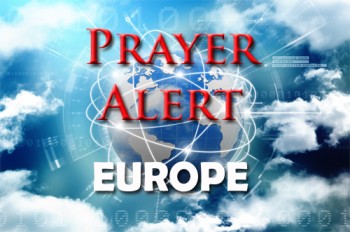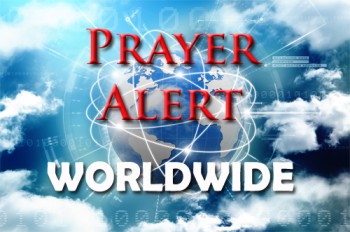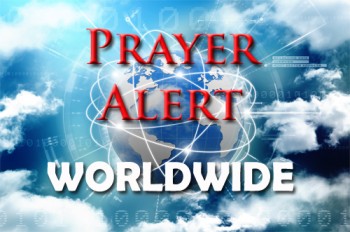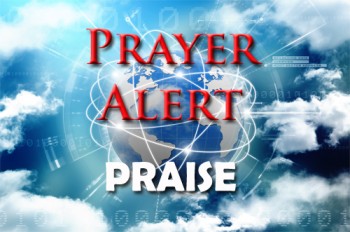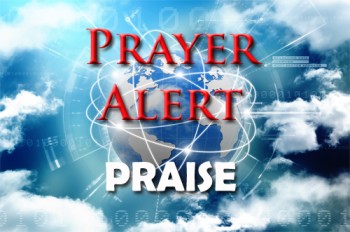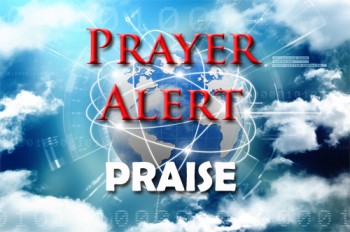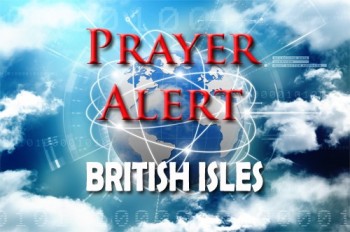Displaying items by tag: Religion
Petition for national day of prayer
A petition launched by evangelist David Hathaway calls on the Prime Minister to hold a national day of prayer in response to the pandemic. For details, see David said, ‘Historically, only prayer has delivered this nation in a time of crisis, as seen both in WW1 in 1918 and even more so in WW2. When we have no human answer to the coronavirus which has devastated both health and our economy, we must seek God’s answer.’ The petition’s opening statement asks for churches to be open for prayer and worship without restriction for the day: ‘We ask you to remember and recognise the strong Christian heritage of this nation and the power of prayer, which is greater than any other power on earth.’ A separate petition, launched by Susan Hawkes in March and also calling for a national day of prayer, has received over 65,600 signatures.
Montenegro: ruling party could lose power after 30 years
Montenegro’s election campaign was dominated by divisions over the powerful Serbian Orthodox Church. There have been months of protests since a law was adopted in December allowing the state to seize religious assets when their historical ownership cannot be proved. Consequently the Church urged people to vote against the Democratic Party of Socialists (DPS). The DPS secured 35% of votes in a tight and bitterly-contested parliamentary election, its worst result since the country won independence from Serbia. Official results show the pro-Serbian opposition alliance on 32.5%, meaning that it could feasibly form a government if it can reach consensus with Montenegro's other two opposition parties. That would see the DPS lose control of power in the Balkan nation for the first time in 30 years. The leader of the pro-Serbian coalition, Zdravko Krivokapic, told supporters, ‘The regime has fallen’. The majority of Montenegrins are members of the Church, while President Djukanovic and his party are accused of having links to organised crime and running the country as an autocracy.
Global: prayer movements, houses of prayer
In 1727 the Moravian community in Herrnhut, Germany started a 24/7 unbroken prayer watch, which continued for over 100 years. Moravian influence on John Wesley helped start the Wesleyan revival. Their vision of sending missionaries (they sent hundreds) helped spark the 19th-century Protestant mission movement which took the gospel to most of the world. 26 years of the annual ‘30 Days of Prayer for the Muslim World’ publications ‘coincided’ with 26 years of unprecedented numbers of Muslims encountering Jesus. Today, movements of Christians praying together to pray are bigger, wider and deeper than at any time in history. 24/7 Prayer (www.24-7prayer.com) and Ihop (International House of Prayer) draw thousands of people into a worldwide, unbroken stream of prayer and worship. But more prayer is needed in this season of global pandemic, recession, fear, poverty and wars.
Ethiopia: at least 500 Christians slaughtered
An Ethiopian Christian leader called for an international inquiry into over 500 Christians killed since the end of June - including pregnant women, children and whole families. The coordinated slaughter was by the Muslim Oromo ethnic group who are members of Qeerroo (meaning bachelors), a male youth movement. In door-to-door attacks, they arrived in cars and, armed with guns, machetes, swords and spears, sought out and slaughtered Christians. Children were forced to witness their parents being brutally murdered with machetes. Some militants held lists of Christians and were helped by local authorities, often run by Muslims, to find individuals, particularly those actively involved in supporting the Church. Oromo ethnic Christians were also targeted. One was beheaded for refusing to deny his faith by tearing off the thread around his neck (worn as a sign of his baptism).
Egypt: women struggling to survive pandemic
Maria, an Egyptian widow, was in tears when telling a local ministry leader that she had lost her job as a housecleaner due to coronavirus lockdown. She supports seven family members, including a daughter with two infants who is separated from her drug-addicted husband and a married son with two children who has lost his job and home due to coronavirus. She sold her kitchen appliances to meet their basic needs. Many widowed women in Egypt have lost their jobs to the pandemic and have no other sources of income, as the government has also suspended disbursement of pensions due to the crowds gathering at offices. Most widows are without a fixed monthly income or a fixed pension. Some have coronavirus, and some have lost a family member to it. Christian Aid has created WhatsApp groups for women and children and supports them spiritually by making prayer times and sharing sermons and songs.
Former transgender drug dealer sees 'coronarevival'
Nichol Collins was a transgender drug dealer for twenty years, then became a Christian after a brutal attack. As a minister for the last few years, she has prayed with people on social media to receive the baptism of the Holy Spirit. When the pandemic spread across the USA she started getting calls from people seeking spiritual help. ‘People were terrified and started saying, “Hey I heard that you pray with people to receive the Holy Spirit”, Collins explained. ‘I always clarify that I'm not giving it out. God is pouring out His Spirit in the last days on all flesh. I'm just a conduit to pray with people, kind of coach them through it. Explain it, make them more comfortable. This is a gift to anyone who asks according to Luke chapter 11:13.’ Recently, more than 120 people have been baptised.
'God called me'
‘And then, as I sat there, I knew that I was being called to come back for longer. A simple thought at one level, but more profoundly an invitation to an adventure that would, in so many ways, turn life as I knew it upside down.’ Interserve partner Chris B shares his story of how a simple call from God led him on a journey of faith to be used by God in ways he would never have expected. ‘In the following months, I explored and tested that invitation with others, and God was gracious enough to confirm his call in several ways. Like Peter, it has been far from plain sailing! But I have never looked back, and 16 years and three countries later I still feel incredibly privileged to be on this journey.’
Faith rises from the rubble
The nations have been devastated to see the destruction in Beirut, but also inspired by the response of the help and support from church, communities, charities and media broadcasts from SAT-7. Presenter Marianne Awaraji Daou said, ‘Thank you for your prayers and support. We feel the unity of the body of Christ during these hard times, and this lifts us and blesses our hearts.’ One survivor speaking on a SAT-7 programme said, ‘The Lord is merciful and compassionate. Jesus protected me, my family, and the people I love. I thank Him every moment. I want to say that evil is increasing, but I believe that the Lord will use everyone who went through this disaster to be His witness. I believe that God works through our prayers and through those who help. My hope is in You, Lord.’
Delivery man calls pastor
Jim answered the phone, ‘Hello’. The caller responded, ‘Are you a pastor?’ ‘Yes, can I help you?’ ‘My name is Jacob, we delivered an appliance to your home and you shared about missions. I was interested in going on a short-term mission.’ Jim said, ‘Yes, I remember you.’ ‘We wanted to go to the Philippines but the virus shut down the mission trip. My wife flew to Ohio to visit family and was killed in an accident. I had her phone that day and I placed your number in it, my pastor told me to call everyone that she had talked to.’ ‘I was overwhelmed, I said to Jacob, ‘Let’s pray’.People are hurting everywhere and we have the answer, Jesus Christ. So the question is, will we share our faith more aggressively? This is what we need to do during this virus fear. Be bold, pray and speak up to everyone, now is the time.’
Christian charity wants funds released
On 17 August the Assyrian Church of the East Relief Organisation (ACERO) applied to Westminster magistrates court to have its funds released, so that it can send money to victims of the Beirut explosion and a Covid-19 relief project in Armenia. ACERO’s accounts were frozen in 2019 after a judge ruled that the police should be allowed to look into allegations that it funded Islamic terrorism by paying ransom money for the release of 223 Christian hostages held by IS. The charity claims money was sent to help rehabilitate Christian Assyrian hostages following their release. Lawyers argued that there is no longer reason to suspect funds were or will be used for terrorist financing, and it is unconscionable to prevent them any longer from being put to humanitarian use.’

